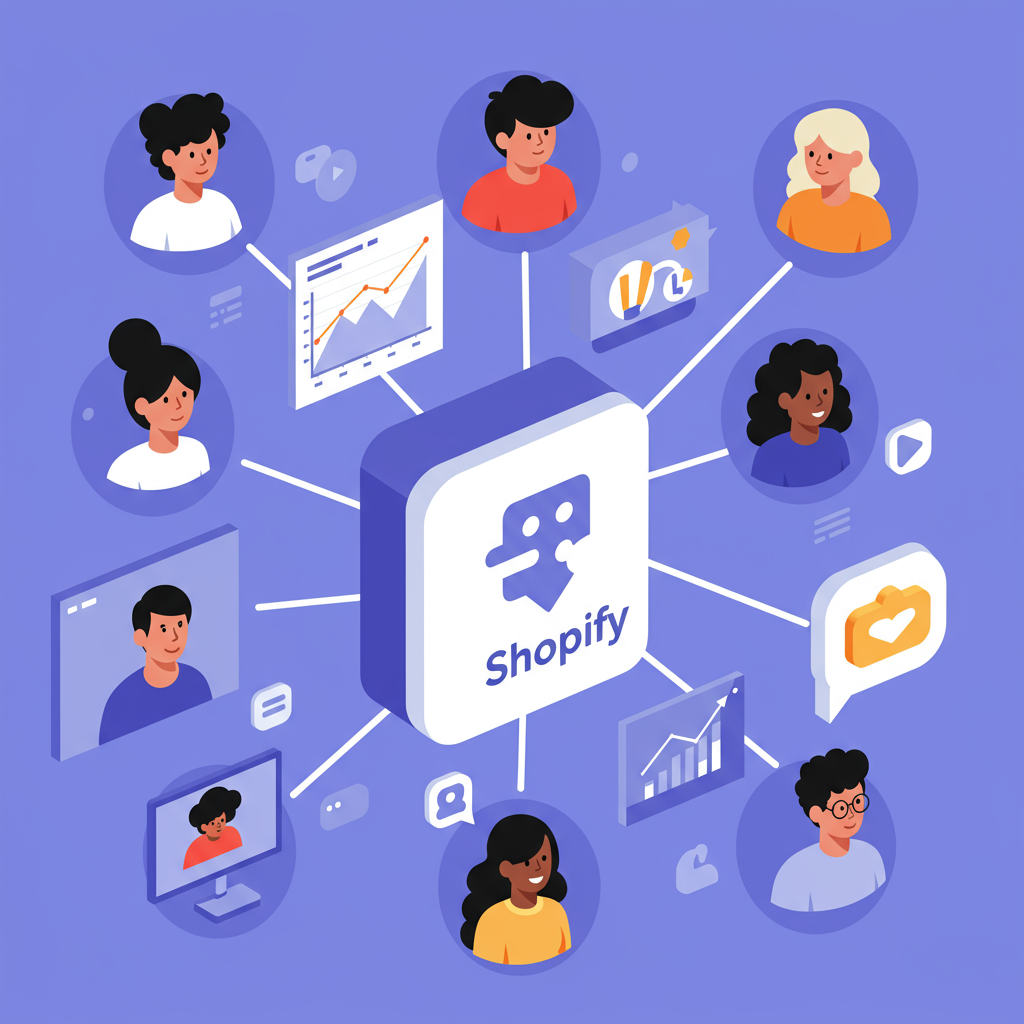Streamlining Your Path to Authentic Brand Connections and Sales
As a Shopify merchant, you’re constantly looking for innovative ways to grow your brand and reach new customers.
In today’s crowded e-commerce landscape, traditional advertising methods often fall short of delivering the authentic connection consumers crave.
This is where influencer marketing steps in, offering a powerful avenue to build trust and drive sales through credible voices.
I’ve seen firsthand how impactful a well-executed influencer campaign can be for a Shopify store.
It’s not just about celebrity endorsements anymore; it’s about micro and nano-influencers who have deeply engaged communities.
These individuals, often with smaller but highly dedicated followings, can generate incredible ROI for your products.
However, managing an influencer marketing strategy can quickly become overwhelming.
From identifying the right influencers to negotiating terms, sending products, tracking performance, and managing payments, the manual process is incredibly time-consuming.
This is precisely why I want to talk about Shopify influencer marketing platforms.
These specialized tools are designed to streamline every aspect of your influencer campaigns, making them accessible and efficient for merchants like us.
So, what exactly are these platforms, and how do they integrate with your Shopify store?
At their core, influencer marketing platforms are software solutions that connect brands with influencers.
They provide a centralized hub for discovery, communication, campaign management, analytics, and often, payment processing.
For Shopify merchants, the integration aspect is crucial. Many platforms offer direct integrations that allow for seamless product fulfillment, discount code tracking, and sales attribution.
This means you can easily send products to influencers, track the sales they generate directly through your Shopify admin, and even automate commission payouts.
One of the biggest benefits I’ve found is the sheer efficiency these platforms bring.
Instead of sifting through social media manually, you can use advanced filters to find influencers based on audience demographics, engagement rates, and niche.
Imagine being able to quickly identify influencers whose followers perfectly match your ideal customer profile – that’s what these platforms enable.
Beyond discovery, they offer robust CRM functionalities. You can manage all your influencer relationships in one place, track communication history, and organize campaigns.
Campaign management tools allow you to set up briefs, approve content, and monitor progress in real-time. This ensures brand consistency and campaign effectiveness.
Analytics and reporting are another game-changer. These platforms provide detailed insights into campaign performance, including reach, engagement, traffic, and most importantly, sales generated.
This data is invaluable for optimizing future campaigns and proving ROI. You can see exactly which influencers are driving the most value for your Shopify store.
When choosing a platform, I always advise looking for specific features.
First, robust influencer discovery tools are essential. Can you filter by audience, engagement, location, and niche?
Second, consider the campaign management capabilities. Does it allow for easy content approval, scheduling, and communication?
Third, look for strong analytics and reporting. Can you track sales directly linked to influencer efforts on your Shopify store?
Fourth, payment processing and automation can save you a lot of headaches. Does the platform handle payouts, commissions, or product fulfillment?
Finally, and perhaps most importantly for us, ensure it has a deep and reliable integration with Shopify. This is non-negotiable for seamless operation.
There are various types of platforms out there. Some are marketplaces where you post a campaign and influencers apply.
Others are more like full-service agencies, offering hands-on management. Then there are software-as-a-service (SaaS) tools that give you the reins to manage everything yourself.
For a Shopify merchant, a SaaS platform with strong Shopify integration often provides the best balance of control and automation.
Getting started usually involves setting up your brand profile, defining your campaign goals, and then using the platform’s tools to find and recruit influencers.
Once you’ve onboarded influencers, you’ll typically send them products (often automated through the Shopify integration) and provide them with a clear brief.
Monitoring their content and performance through the platform’s dashboard becomes a daily routine.
My advice for success? Start small, test different influencer tiers, and always prioritize authenticity over reach.
Nurture long-term relationships with influencers who genuinely love your products. They will become your most powerful advocates.
Remember, influencer marketing is a marathon, not a sprint. Consistent effort and data-driven optimization will yield the best results for your Shopify business.
It’s an investment that, when managed effectively with the right tools, can significantly amplify your brand’s presence and sales.
I truly believe that leveraging these platforms is no longer a luxury but a necessity for competitive Shopify stores.
They empower us to scale our marketing efforts without scaling our operational overhead.
So, what do you think about this article? Do you have any experiences with influencer marketing platforms you’d like to share?
I hope this overview has been helpful in guiding your decision-making process for your Shopify store.






